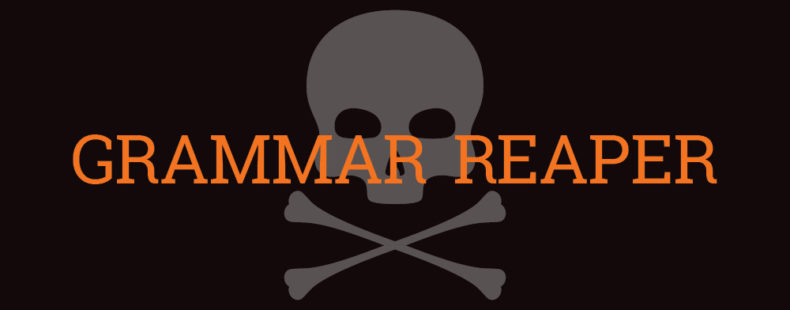Grammar Reaper
Just as the Grim Reaper is a spectral portend of a person’s death, the Grammar Reaper foretells someone’s tragic end as a writer. Instead of reaping souls, the Grammar Reaper confiscates all notebooks, papers, writing implements, and electronics; he seizes the offender’s voice, prevents the shaping of words with the mouth, and diminishes any cognitive ability to communicate in sign language. Communication is dead.
Costume: The Grammar Reaper is cloaked in reams of college-ruled paper, so soaked in blood, sweat, and tears, he staggers under the weight. He carries a giant dripping red pen, retrofitted with the whirring blades of a pencil sharpener.





















